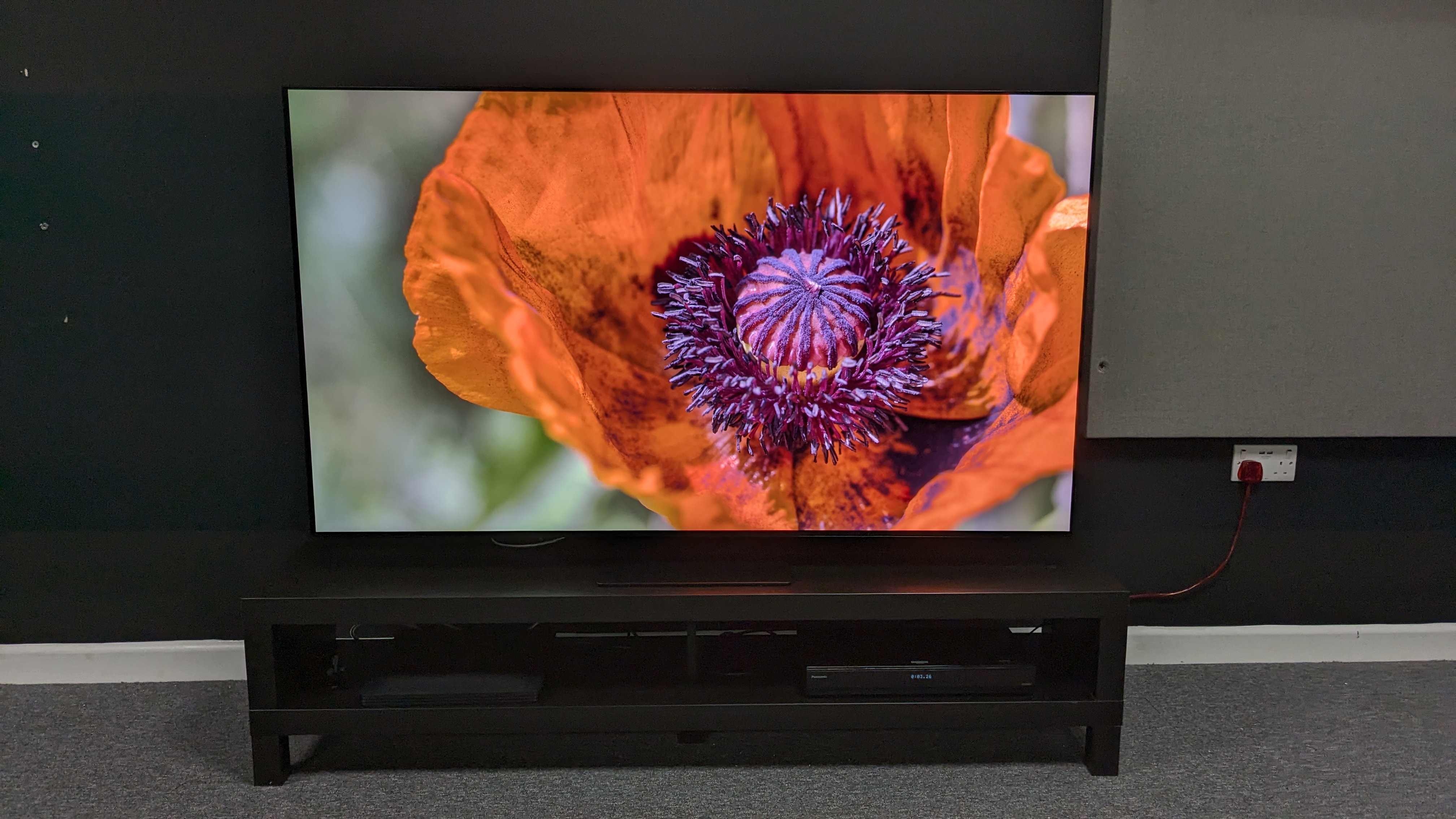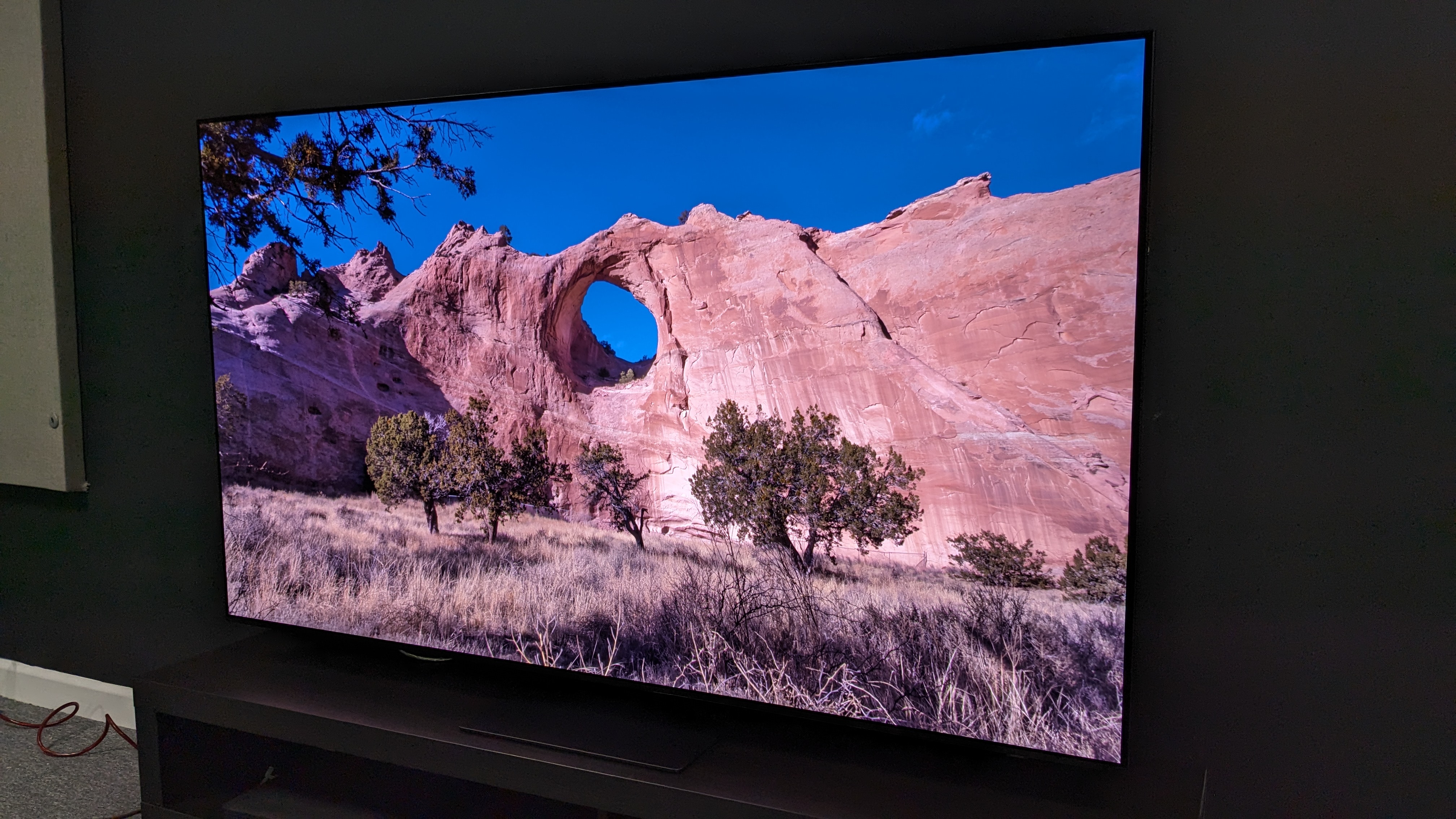
Nominating the Samsung S95D as our TV of the Year for 2024 shouldn’t deliver the same shock factor as when the Samsung S90C OLED TV ended LG’s TV of the year reign in 2023, but the reason it earned this title at the TechRadar Choice Awards 2024 is an interesting mix.
What it came down to was a combination of sensational AI-powered processing and a matte screen. This combination of digital and analog tech gave the Samsung S95D a leg-up over the competition and cemented it as one of the best TVs we’ve ever seen.
When I reviewed the S95D, I was surprised by the effectiveness of its OLED Glare-Free screen. Our TV testing room at TechRadar has harsh overhead lighting to help us test reflectivity, but the S95D made easy work of it, all but eliminating reflections and screen glare. I could even watch The Batman, a notoriously dark-looking movie, in full lighting without being distracted!
Screen reflections have typically been kryptonite for the best OLED TVs due to their relatively low brightness levels, and while the new Micro Lens Array (MLA) tech gives OLEDs like the LG G4 and Panasonic Z95A a serious boost, we found the S95D and its simple matte screen over a stunningly bright next-gen QD-OLED panel to be even more effective for viewing in bright rooms.
As I said, the matte screen isn’t the only reason the S95D won – it’s just one big piece of the TV-of-the-Year-winning pie. Like other TV makers, Samsung talked up AI innovations in its TVs at CES 2024, but the S95D is one that legitimately shows how AI can improve picture quality.

When testing the S95D, I marveled at how realistic textures and details looked. Even stitching in clothing and cracks in rocks took on a lifelike quality I hadn’t seen before on a TV. Part of this is the S95D’s QD-OLED display panel, but it’s also Samsung’s Real Depth Enhancer AI feature that contributes to the TV’s spectacularly detailed picture.
Other AI features in the S95D include 4K AI upscaling, which I found during testing even worked wonders with lower-resolution broadcast TV. Another new feature, OLED HDR Pro, further boosts brightness, giving HDR highlights in images a bolder, more vibrant look. In our tests, the S95D yielded 1,868 nits peak brightness – an over 35% brightness increase compared with its predecessor, the Samsung S95C, and the brightest OLED we've tested to date.
Combine all these features with the rich color and powerful contrast delivered by the S95D’s QD-OLED panel and you get an outstanding TV that looks great with every source thrown at it.
But it isn’t just picture quality where the S95D delivers. It’s stacked with features we look for in the best gaming TVs including 4K 144Hz, VRR (with AMD FreeSync Premium Pro), HGiG support and ALLM . It also comes with Samsung’s Gaming Hub built-in, a useful destination for gamers looking to get to the action right away.
Rounding everything out, the S95D’s built-in sound provides accurate placement thanks to an Object Tracking Sound+ (OTS+) feature. It has a ‘floating’ appearance thanks to a clever stand design, and its external One Connect Box houses all connections with one cable connecting to the TV – ideal for wall-mounting and cable management.
The S95D isn’t perfect. I think one of the best soundbars is needed to add extra audio immersion, and there was some black crush present in dark scenes when I tested it, but there really isn't any other way I could fault Samsung’s top OLED TV.
I’ve seen every major S95D competitor this year – the LG G4, Sony Bravia 9, Panasonic Z95A and Philips OLED909 to name a few – and while they all have their strengths and are superb TVs, none gave me the same feeling of seeing a leap forward that the S95D did. As I said in my review, the Samsung S95D is both “the future of OLED” and “the standard bearer for 2024”. If that doesn’t say TV of the Year, what does?




.jpg?w=600)


